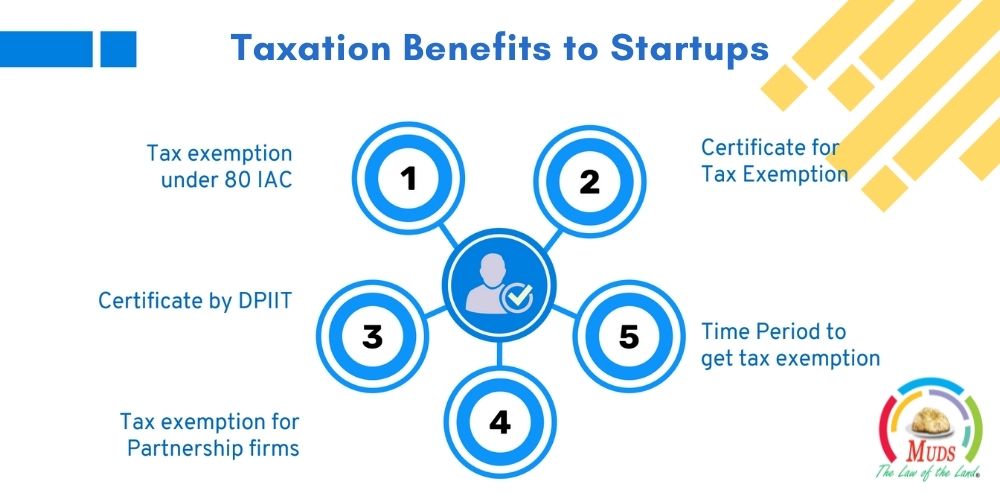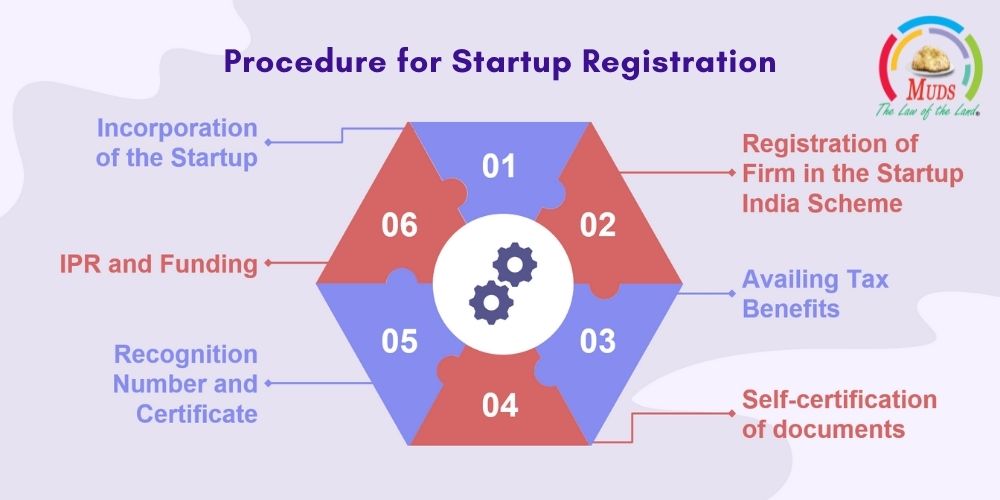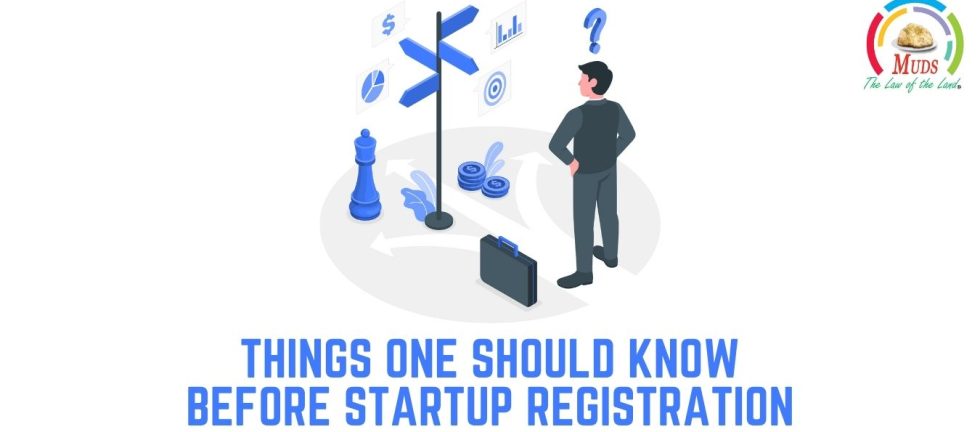Things One Should Know before Startups Registration
All the major economies of the world are facing the wrath of pandemic on their financial and economical market. However, the projections for the Indian Economy post the vaccination looks bright. The effects of lockdown led to closing of many small and medium size businesses. Most of them are on the verge of permanent shutdown and the chances of recovery seems bleak. This will create a lot of space in the market for newer companies to grow when the situation gets normal. Thus, the opportunity for startups looks bright in the future.
Startups means a new type of business entity that just starts its operations in manufacturing, services, or any other sector of the economy. The company can be started with a new innovative idea for a different kind of product or service. Such entities are generally smaller in size in terms of capital and human resources. These companies generally get funding from venture capitalists in India or abroad. In the following sections we will understand what is termed as a startup?, the eligibility criteria for startups registration, taxation benefits given to them, and the Startup India program launched by the Government of India.
What is a Startup?
Start essentially means a new business venture with a new innovative idea for a business or a new product. They generally reduce the traditional gaps in the market. For example, food delivery companies were scarce in the country a decade ago. A few startups took advantage of the market gap between the customer and the food vendors. And now, these startups are growing tremendously as the online food delivery business has picked up in the pandemic.
The startups are registered in India under the Government’s flagship program STARTUP INDIA-2016. The program was launched by the Prime Minister Narendra Modi to facilitate the startup environment and fulfill the vision of making our youth job givers rather than job seekers. The program was introduced to impart relaxations and benefits to newly established businesses. There were several incentives too for the companies. The provisions for registration under the program are mentioned later in the blog but before that, let’s understand the eligibility criteria for a startup and the tax relaxations they get.
Eligibility to be a Startup
Different Kinds of registration
A Startup can be registered as a Partnership as per the:- Under LLP Act, 2008
- Companies Act 2013, as a private limited company
How old should the company be?
The company seeking Startup registration must be less than 10 years old.Minimum Turnover Requirements;
The turnover of the applicant company should be at least Rs. 25 Crores or lower.Startup idea Innovative
To register as a startup, the applicant company must be based on an innovative idea or a scheme that is unique in itself. It should be able to bring some improvement or development to the existing market through its product or business.Certificate from DPIIT
DPIIT (Department for Promotion of Industry and Internal Trade) must have given a certificate to the startup. The department works under the Ministry of Commerce and Industry and should give its promotional nod to the applicant firm.Minimum Period to be Startup
Usually, the companies who have completed 7 years of their incorporation are considered startups. However, for some industries like biotechnology, the limit is set at 10 years.Before Approval from DIPP
The applicant firm must be promoted and supported through any Angel Fund, incubation fund, private equity fund, etc. The funds should be registered as per the norms of SEBI.Taxation Benefits to Startups

Startups also enjoy a lot of tax benefits given by the Government of India. This is done to promote the business culture of these firms. Here are some of the exemptions given to these entities.
Tax exemption under 80 IAC
This is the type of tax exemption given to a startup registered as an LLP on or after 1st April 2016. The minimum turnover requirements for such entities are set at Rs. 25 crores or less.Certificate for Tax Exemption
This type of certification of tax exemption is given by an inter-ministerial body. The body is the board of certification which allows this type of certification.Certificate by DPIIT
This certificate and the associated tax exemption are given after the approval of DPIIT. The startups need to apply for this approval from this department.Tax exemption for Partnership firms
There are also norms made for giving tax exemptions to registered startup partnerships.Time Period to get tax exemption
The startup firms are given a minimum time period of 3 years for availing the tax exemptions. The tax benefits can be availed from the 3 years of incorporation till the 7 years of incorporation. The company is allowed to choose a period of any three years.Start-Up INDIA Program
The Startup India Program was launched by the Indian prime minister Narendra Modi. The PM envisioned that the youth of the country should be job givers rather than job seekers. The GOI initiated this scheme in 2016 and a registration process for the program was introduced. With an objective to enhance the growth of rehabilitation startups in the Indian market, the scheme entails numerous benefits post registration for the firms. The broad vision of the scheme is to enhance the economic growth of the country and nurture the innovative mindset of youth. The program also envisions creation of numerous job opportunities that will lower the unemployment rate.
Benefits of Startup India Registration
The Government’s program offers multiple benefits to firms registered under this scheme. Some of these benefits are listed below.
- Income Tax exemptions benefits for three years.
- Startups registered under this scheme get the benefits of self-certification for compliance matters associated with the nine labour laws and the environmental laws.
- Startups are given up to 80% rebate on the filing of patent application if they are registered under this scheme.
- Just like the patent rebate, the firms registered under the Startup India Program also get a 50% rebate on trademark filing.
- The platform gives support and recognition to any new startup and enables it to compete with established businesses in the same sector.
Procedure for Startup Registration

Incorporation of the Startup
This step basically means that the startup should be incorporated as a LLP or a Private Limited Company. The procedure for the same would be just like a normal company incorporation process and won't involve any special steps. Common compliance steps like submission of PAN card and other documents must be followed. For registration under the Start-up India Program, the incorporation must be done after 1 January 2016.Registration of Firm in the Startup India Scheme
The registration under the Startup India Scheme is done online through a registration form. The scanned copies of the requisite documents are submitted on the website along with the form. After completion of the process, the firm can enjoy the benefits of the program.Availing Tax Benefits
The inter-ministerial board gives the approval to the startup for availing tax benefits. The firm can also avail tax benefits of the IPR post recognition from the DPIIT.Self-certification of documents
The applicant can choose to self certify the documents related to the company to avail taxation benefits. The Self Certification will be given to state that the idea is innovative and unique, the business set up is not formed after splitting from an existing business or post restructuring of an existing entity. It should also state that the annual turnover for the firm is less than Rs. 25 Crores.Recognition Number and Certificate
After submission of all the documents, the DPIIT verifies all of them and then decides on whether to give its certification to the company or not. If the authority is satisfied, it grants a unique recognition number to the applicant company. After successful verification of the documents, the DPIIT gives Certificate of Recognition.IPR and Funding
For a startup, the government has given the facility to new firms that they can pay up to 80% of the fees for patent filing applications. This has been done to support newer innovations from these organisations. These firms also get a levy on the fee of trademark filing.To Conclude
The Startup India Program has been launched with the Digital India campaign. The government also announced a combined fund for these types of entities to support their business. Registering in the program gave numerous benefits to the entities. This included support for funding along with various taxation benefits. Thus, it is worthy for the entities to get startups registration completed.
The whole process of startup registration is quite simple and can be completed online. However, arranging documents and certifications to get various benefits of the program after registration could become tedious for companies. Hence, they are advised to take assistance from business advisory firms before getting their startup registered. These firms provide end to end support to the companies during the registration process and can also suggest ways of getting additional funding for their expansion. The firms also help in creation of a valuable business plan for the next 2-3 years.


